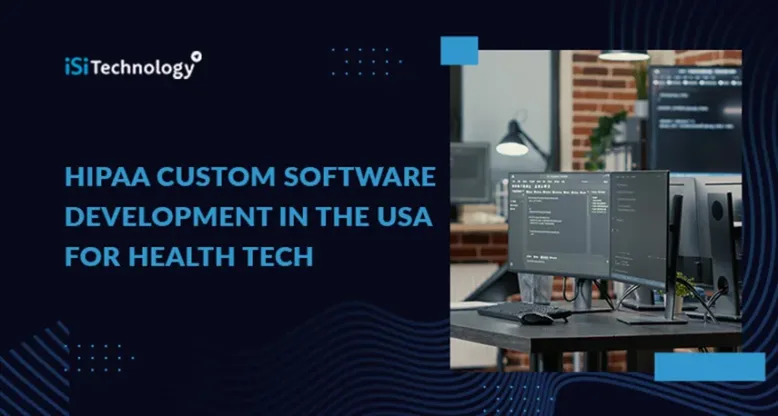HIPAA Custom Software Development in the USA for Health Tech

Are you an organization in the healthcare industry that deals with data? If yes, you must have to meet software development standards defined by (HIPAA) 1996.
The U.S. government passed the bill outlining a comprehensive guideline for the healthcare industry. The idea was to implement security when dealing with important data. The guidelines mentioned in the act also require companies to ensure that only authorized employees have access to critical data and records.
Further, you must develop software with the features to keep it secure from falling into the wrong hands. However, with everything going online in the last decade, the act went under the amendment in 2013. This revision of the guidelines addressed how companies must handle information and data digitally.
If you are planning to develop unique software that caters to your needs, you have to come up with a solution that abides by the guidelines. From EMTs to other healthcare services, everyone must comply with this rule.
Basic Requirement
For a compliant development process, you must secure your PHI (Protected Health Information). For this purpose, you must fulfill the following mandatory requirements.
- There is access control with roles assigned to the right employees.
- Your system has adequate security protocols to prevent any external, unauthorized access or amendments to the data.
- It would also be compulsory to ensure a safety net against cyber attacks.
- There should be an employee portal with defined roles and access privileges for each user.
- The system must have a feature that can identify potential risks, learn from them and prevent any future events.
If you are not a tech-savvy organization, hiring a software development company with expertise in HIPAA is a good option.
Features

Since the outbreak of the pandemic, most industries and businesses have adapted the contactless business model. The healthcare industry has also adopted online services. For example, telehealth and online NEMT services are becoming popular.
If you are developing a customized solution that will be unique to your business you must remember HIPAA requirements. There must be specific safety features, and here are the most critical ones.
Authorization
The software should have the feature to create user profiles with permission to define roles and authorize specific access to critical information. This will prevent any data breaches and flag unauthorized attempts.
Documentation
Like any other business, you deal with lots of information, and this may involve documentation. The software must have a documentation feature with online forms and a database with security measures to keep records safe and backed up.
Encryption is the Key
Encryption codes your information into an unreadable format. So even if someone does get access, the data will be encrypted and safe. Your software must encrypt the information before storing it. This is a must-have feature in your customized solution.
Security
You must ensure that your solution has strong safeguards. The software should be intelligent enough to identify any vulnerabilities and learn from them. This will allow you to eliminate the chances of future cyber attacks.
The solution must be smart enough to know which of your data is critical for backup. The software solution you use must use encryption and be able to authenticate the data.
Managing Business PHR
If you are a healthcare service provider handling ePHRs, your business associates may be liable for timely audits by the government. Any entity working with you must also ensure the same data protection as defined by HIPAA.
Error Detection
Your HIPAA-compliant customized software must ensure to include functionality that can correct errors. You must take even small errors and make sure to rectify them as soon as you can.
Audits and Reporting

As a healthcare provider, HIPAA requires you to audit your data protection protocols. This will help identify any potential risks for hacking and cyber attacks. Your solution must analyze the monitored data and establish your compliance level. This can provide valuable insights to avoid future risks.
Secure Backup
To prevent data loss for any reason, your customized software solution must be able to recover lost data. However, this backup data needs encryption.
Conclusion
Healthcare organizations must be compliant with HIPAA’s directive when dealing with patients’ sensitive data.
If you wish to maintain the standards, it is imperative that your software solution fulfills the above-mentioned requirements. We at ISI Technology can help as we can provide a customized solution that is compliant. We will also assist in integrating it with your existing infrastructure for convenience. Speak to our team today and start working on your HIPAA-compliant software today!
